Vintage Dragonfly Illustrations: Elevate your art projects and home décor with this curated collection of vintage drawings of dragonflies, which capture their whimsical charm.
Some of these illustrations may be of closely related damselflies; where the insect has not been identified, I have assumed they were dragonflies because they look like dragonflies. However, they could be damselflies.
One of my newsletter subscribers requested some dragonfly illustrations. As I considered adding them to the natural history collection on the blog, I decided to focus on them this week.
When visiting my parents in the summer in Portugal, we often visited a local country hotel with a beautiful pond full of fish and terrapins. The pond is constantly buzzing with dragonflies. My father, an amateur wildlife photographer, loves to photograph insects. Like butterflies, dragonflies are one of the more aesthetically appealing insects.
Dragonflies’ appeal is often reflected in culture. The insect can be found on artefacts such as pottery, rock paintings, statues, and Art Nouveau jewellery. In Japan, dragonflies are symbols of courage, strength, and happiness.
Facts About Dragonflies
- Adult dragonflies have large, multifaceted eyes, two pairs of strong, transparent wings, sometimes with coloured patches, and an elongated body.
- They are mainly found near water
- Dragonflies live on every continent except Antarctica.
- Dragonflies have been around for a long time. They were on Earth 300 million years ago, pre-dating the dinosaurs. Fossils show that some of the original dragonflies were much larger than today, with wingspans up to 60cm.
- Over 5000 species of dragonflies have been identified.
- The insects belong to the order Odonata, which means “toothed one” in Greek and refers to the dragonfly’s serrated teeth.
- Dragonflies are expert fliers. They can fly straight up and down, hover like a helicopter and even mate mid-air. As well as being aerial acrobatics dragonflies can fly at more than 20 miles per hour.
- They only eat prey they catch while flying.
The Free Dragonfly Drawings and Illustrations
All these vintage dragonfly drawings are in the Public Domain. This means you can download and use them as you wish.
To download the insect illustration of your choice, click on the title above. A higher-resolution dragonfly image will open in a new tab in your browser. If you right-click on your mouse, you will have the option to save the image to your hard drive.
1. Two dragonflies (Libellulæ species)
These dragonfly illustrations are by the British entomologist Moses Harris (1731-1785). He was the first English artist to make scientific drawings of dragonflies detailed enough to be identified to species. He published them in “The Aurelian or natural history of English insects” (1766).
Libellula is a group of dragonflies, commonly known as skimmers. They are found in the Northern Hemisphere, with most species in the United States. Where they are the best-known large dragonflies, often seen flying over freshwater ponds in summer. Many have showy wing patterns.
2. More Moses Harris Libellula Illustrations
A beautiful dragonfly painting by the Belgian entomologist Pierre Leonard Vander Linden. Aeshna affinis, a blue-eyed hawker, is a dragonfly in southern Europe and Asia.
The following 5 dragonfly illustrations are from the 1900 book “British dragonflies (Odonata)” by William John Lucas.
4. Somatochlora – Striped Emeralds
Members of this genus of dragonflies are medium-sized with dark bodies and a metallic green lustre.
The emperor dragonfly (Anax imperator) is a large hawker dragonfly, averaging about 3 inches in length.
The azure hawker (Aeshna caerulea) is a smaller species of hawker dragonfly. The insect is widespread in the Eurasian polar region. In Great Britain, the azure hawker occurs only in Scotland.
Calopteryx is large damselflies. The colourful males often have coloured wings, whereas the more muted females usually have clear wings.
The next few dragonfly drawings are from the 1845 book “British libellulinae, or, Dragon flies : illustrated in a series of lithograph drawings, with a brief description of the insects, times of appearance, &c” by Evans, W.F.
Forktails are small damselflies found worldwide, including various oceanic islands. The males have a forked projection at the abdomen’s tip, giving the group their common name.
These are relatively large dragonflies. Their thoraxes and abdomens are brown in colour, with blue or yellow stripes or spots on the thorax and yellow, blue, or green spots on the abdomen.
The common hawker is one of the larger species of hawker dragonflies. It is native to Palearctic (from Ireland to Japan) and northern North America. The flight period is from June to early October.
12. Clubtail Dragonfly Drawings
13. The Biology of Dragonflies
This biological dragonfly poster is from the book “The Biology of Dragonflies (Odonata or Paraneuroptera)” 1917, by Tillyard, Robin.
This dragonfly print is from the book “An elementary manual of New Zealand entomology; being an introduction to the study of our native insects” 1892.
Illustrations from Exotic Entomology
The next six dragonfly illustrative prints are from the “Illustrations of Exotic Entomology” by Drury, Dru 1837.
15. Illustrations of Exotic Entomology 1
17. Exotic Entomology Dragonfly Drawings 3
18. Exotic Entomology Dragonflies 4
20. Exotic Entomology Dragonfly Poster 6
This dragonfly was used to illustrate some Latin Calligraphy from Mira Calligraphia Monumenta, and painted by Joris Hoefnagel.
21 Pochoir Dragonflies E. A. Seguy
These dragonflies and damseflies are from Seguy’s art nouveau insect book.
Print 22: Dru Drury Dragonflies
A collection of dragonfly illustrations by Dru Drury. Check out more of his vintage entomology prints here.
Another Joris Hoefnagel dragonfly print is from his famous collection, Four Elements.
If you are looking for more examples of dragonfly drawings and illustrations, some will be in the Adolphe Millot Natural History posters collection. There are also some dragonflies in this collection of vintage insect art prints. Check out the prints from Fabre’s Book of Insects.
I think that these dragonfly drawings would also look great displayed like this DIY butterfly wall decoration.
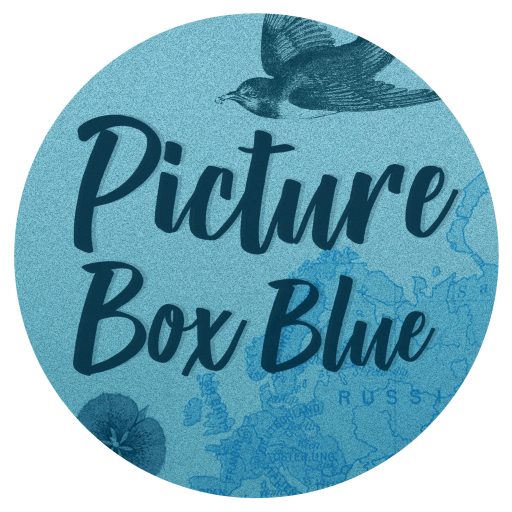
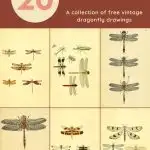
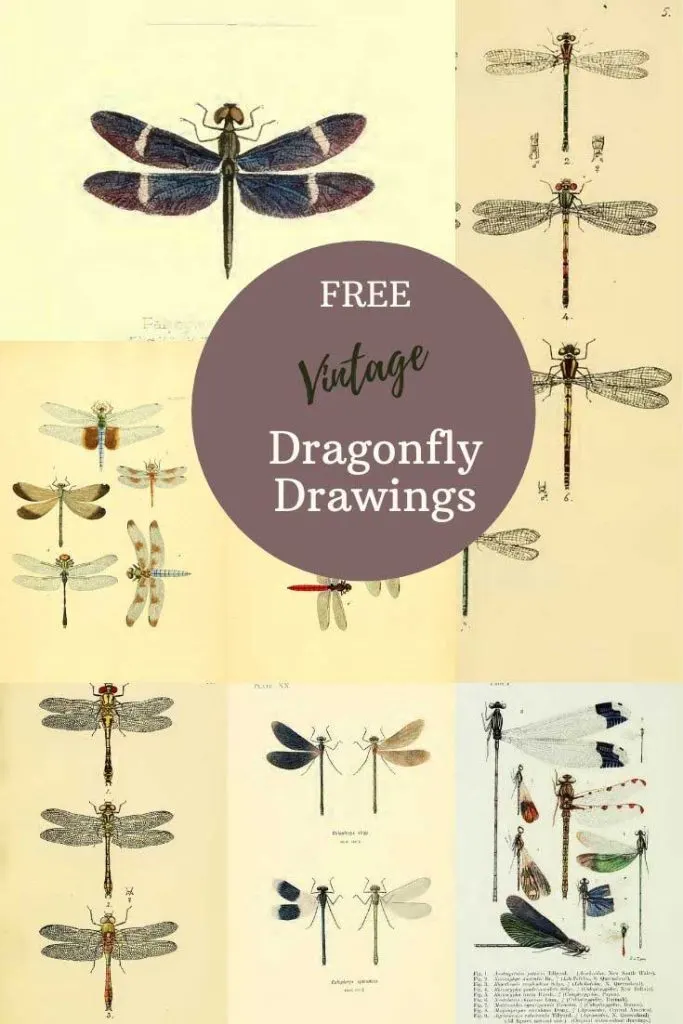
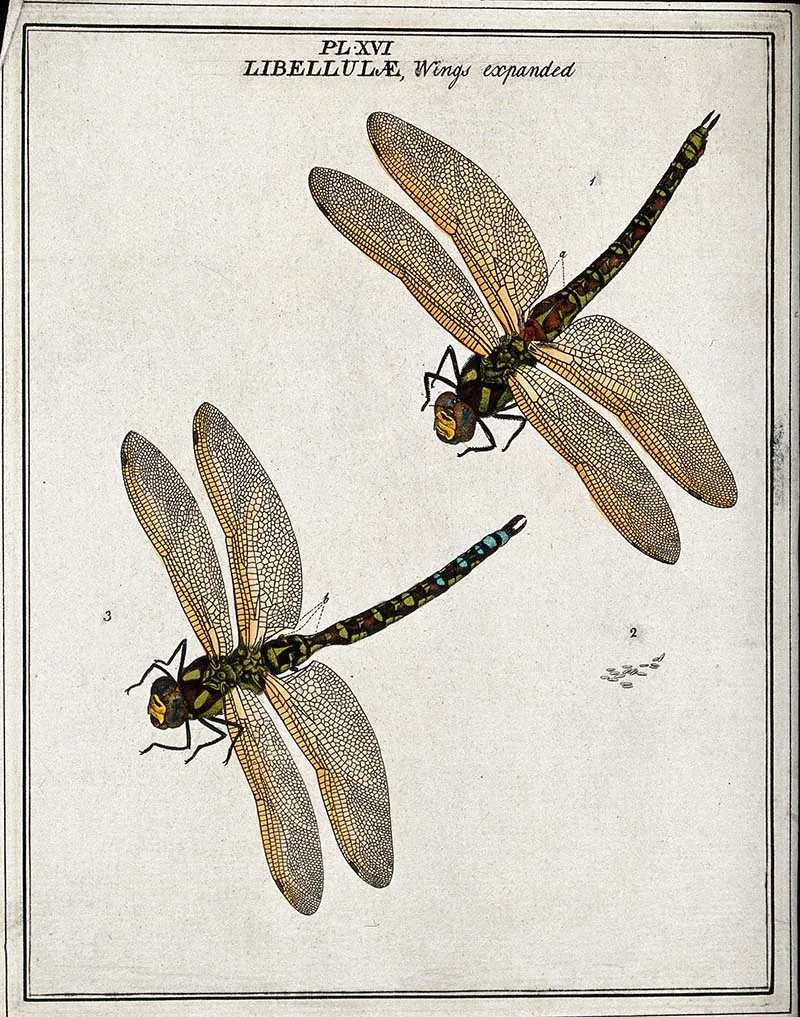
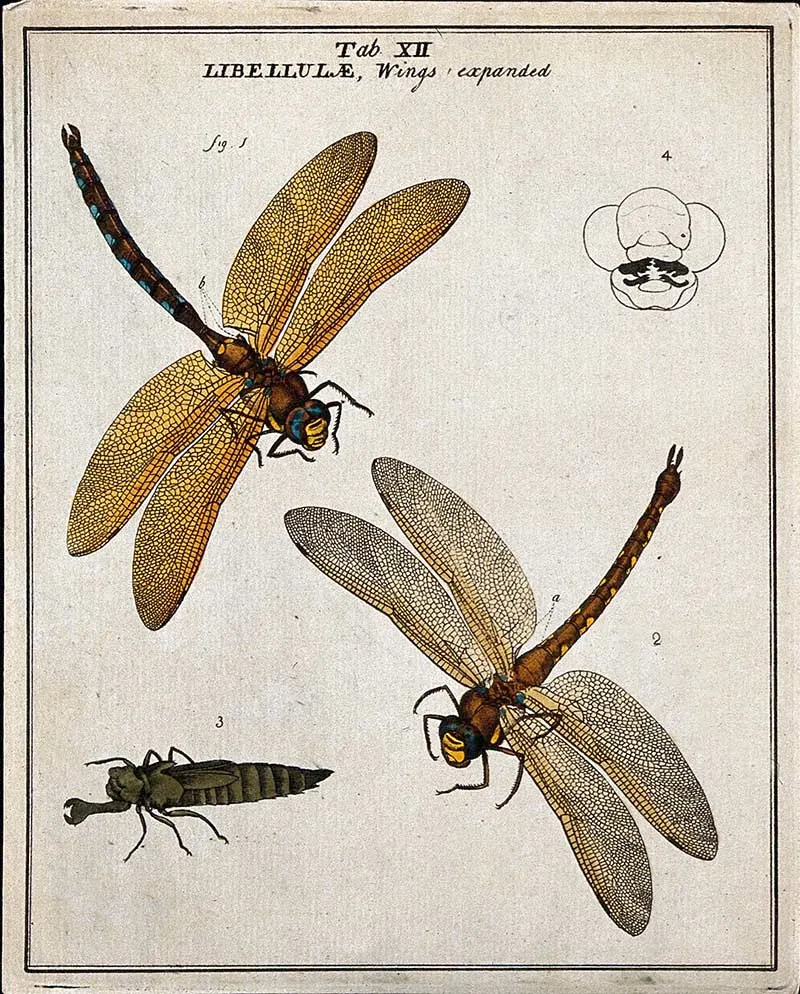
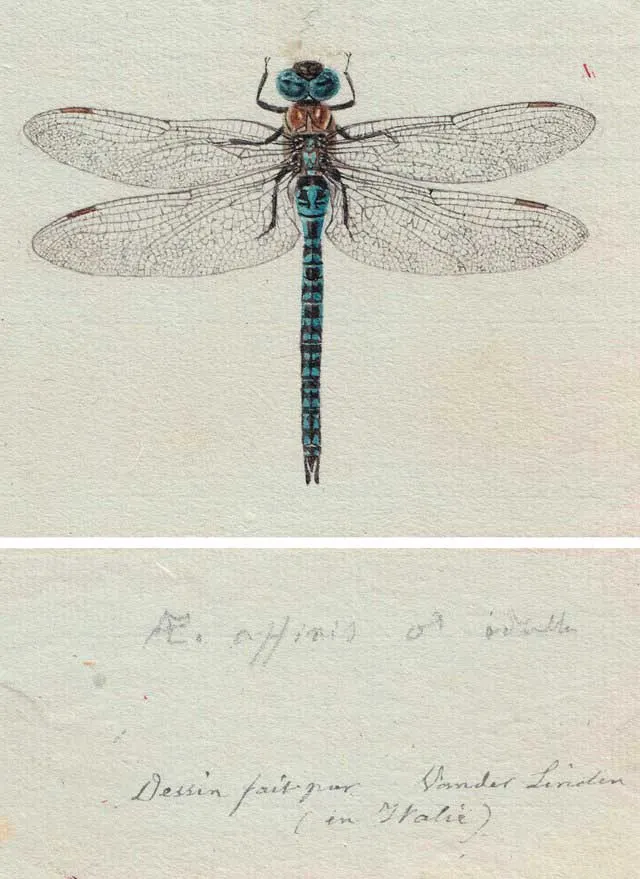
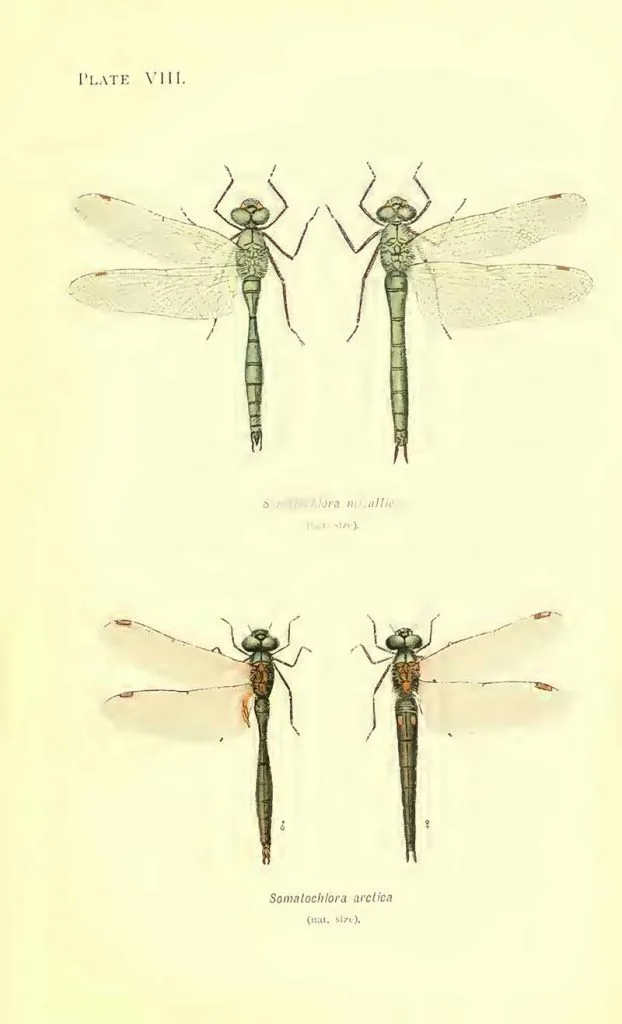
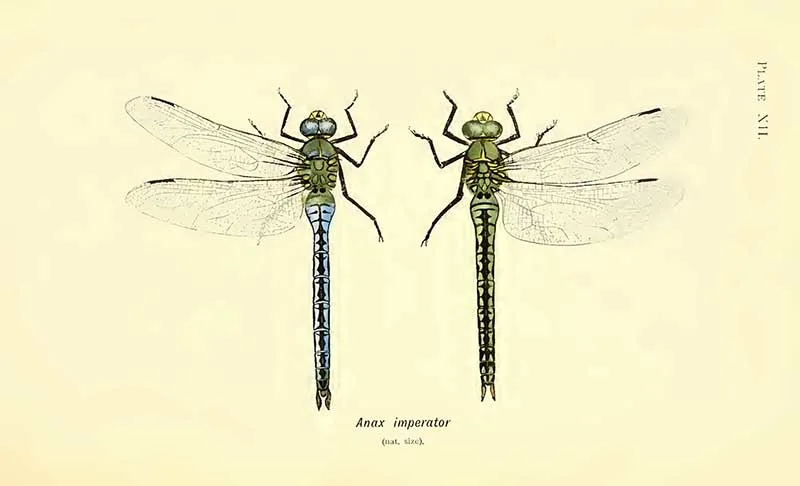
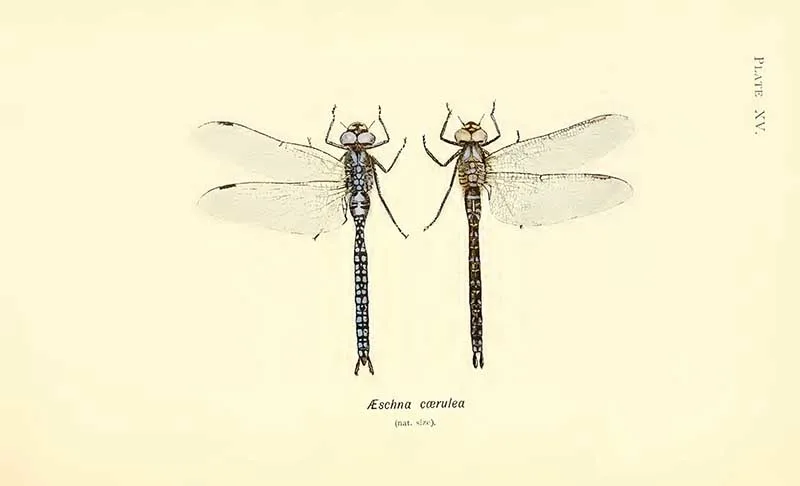
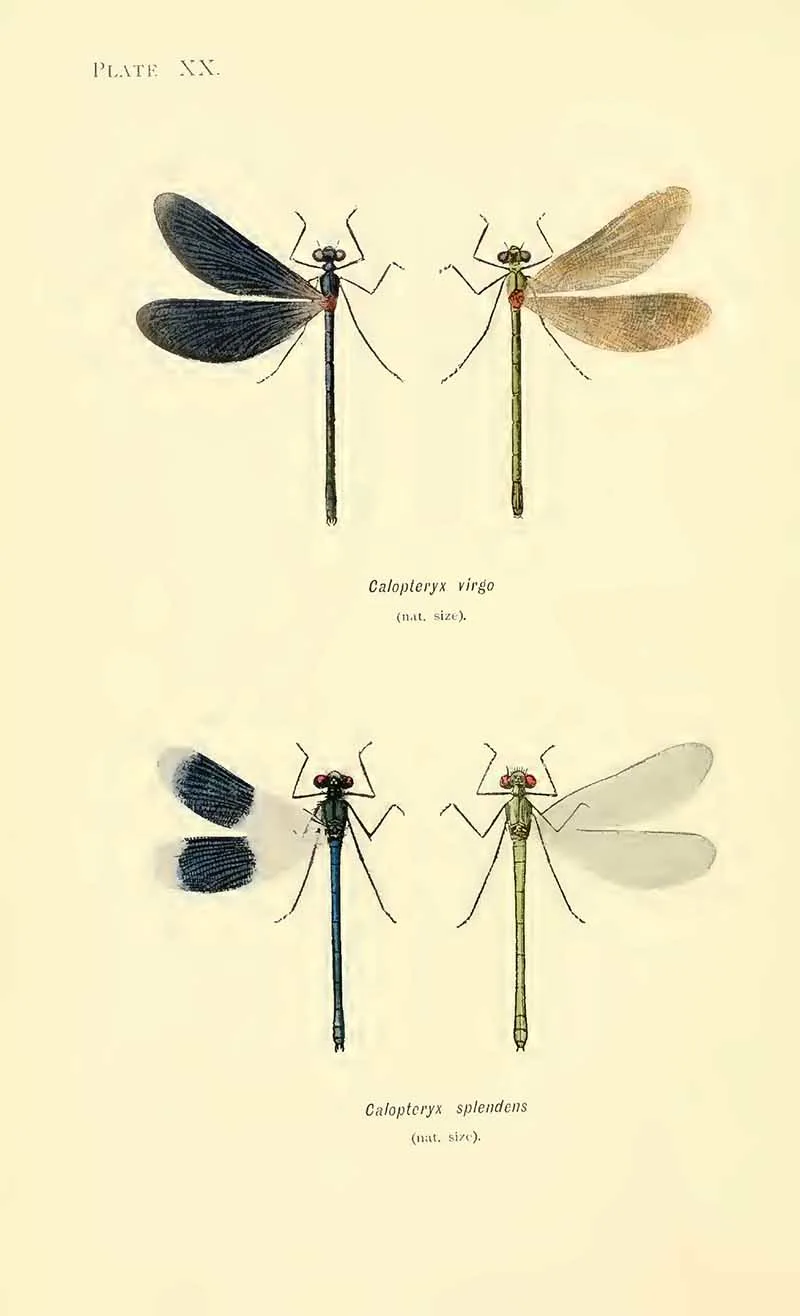
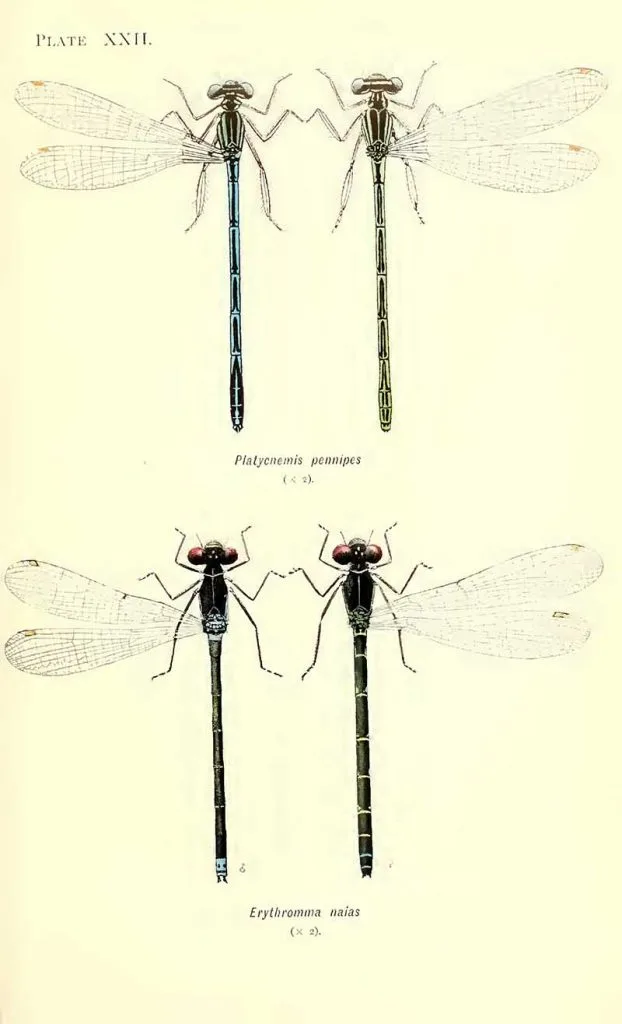
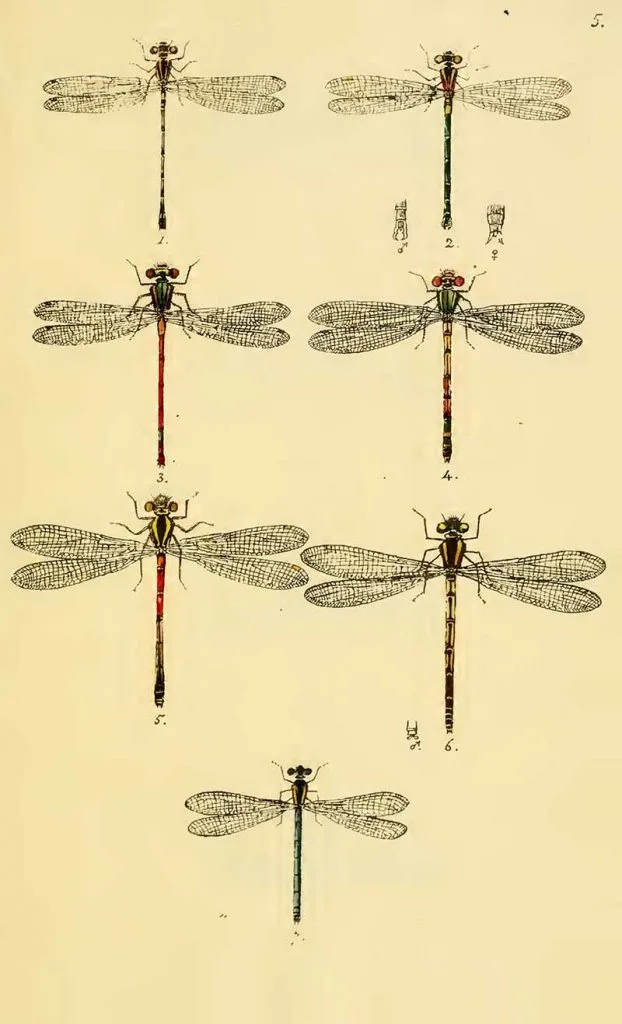
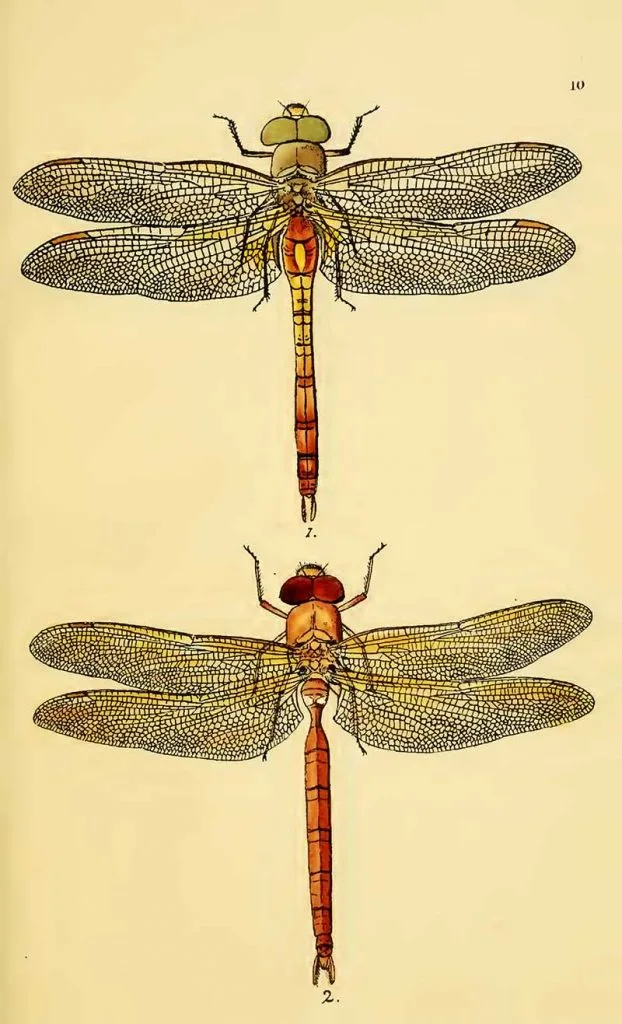
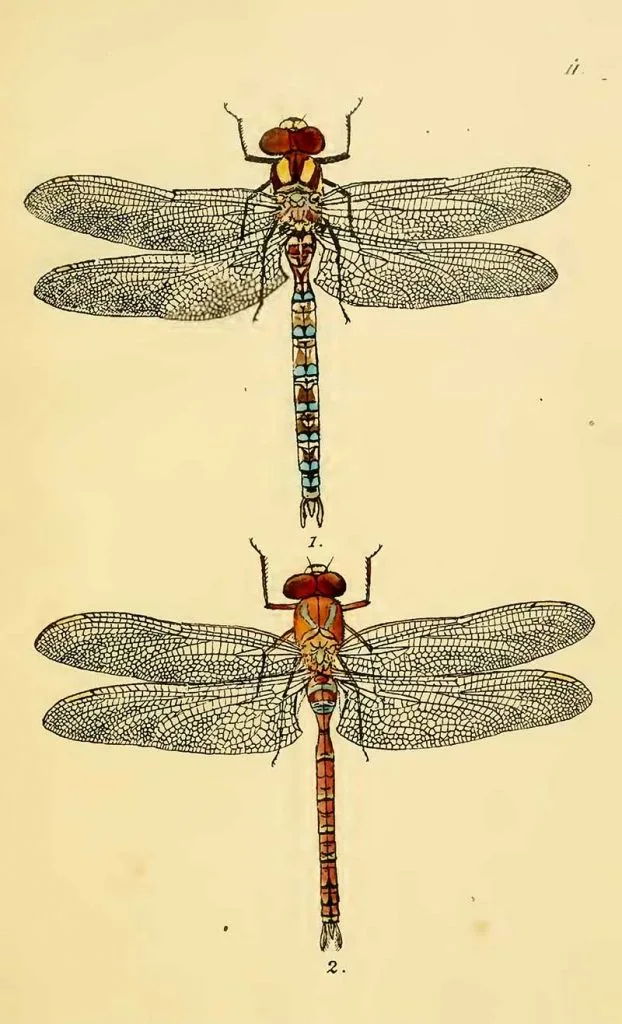
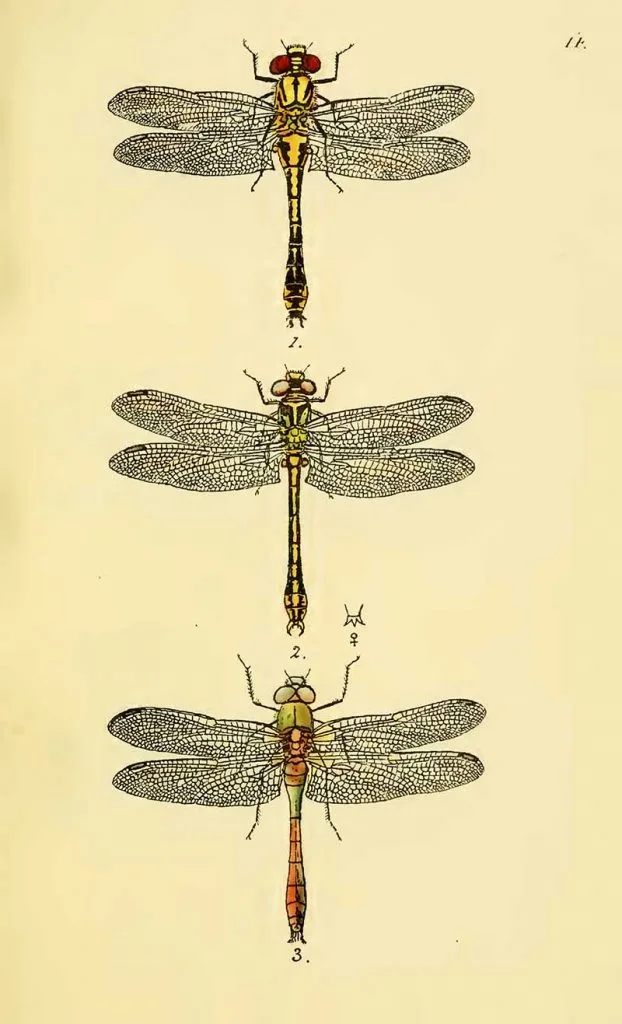
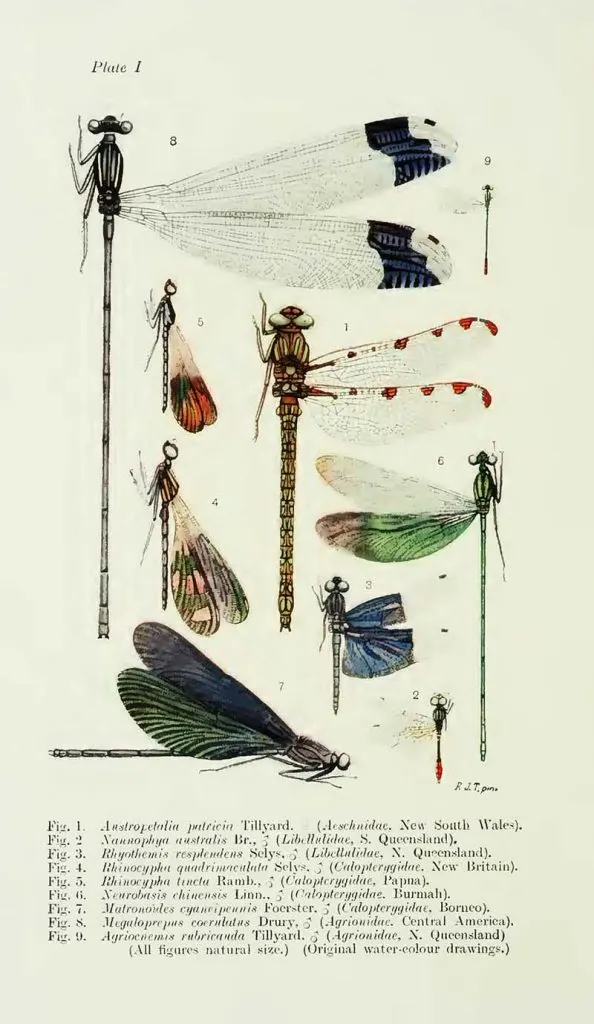
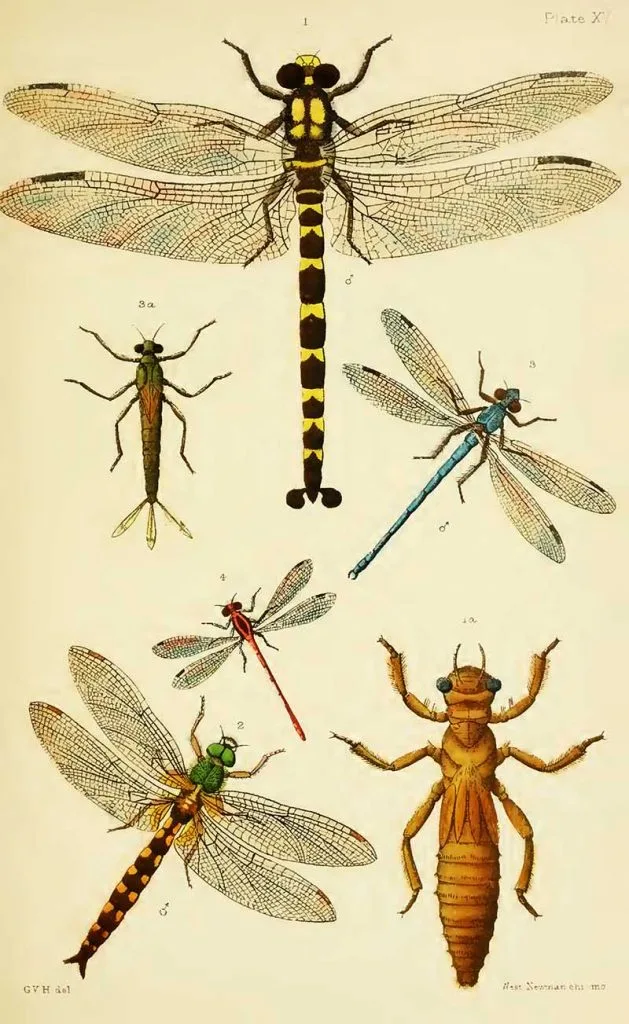
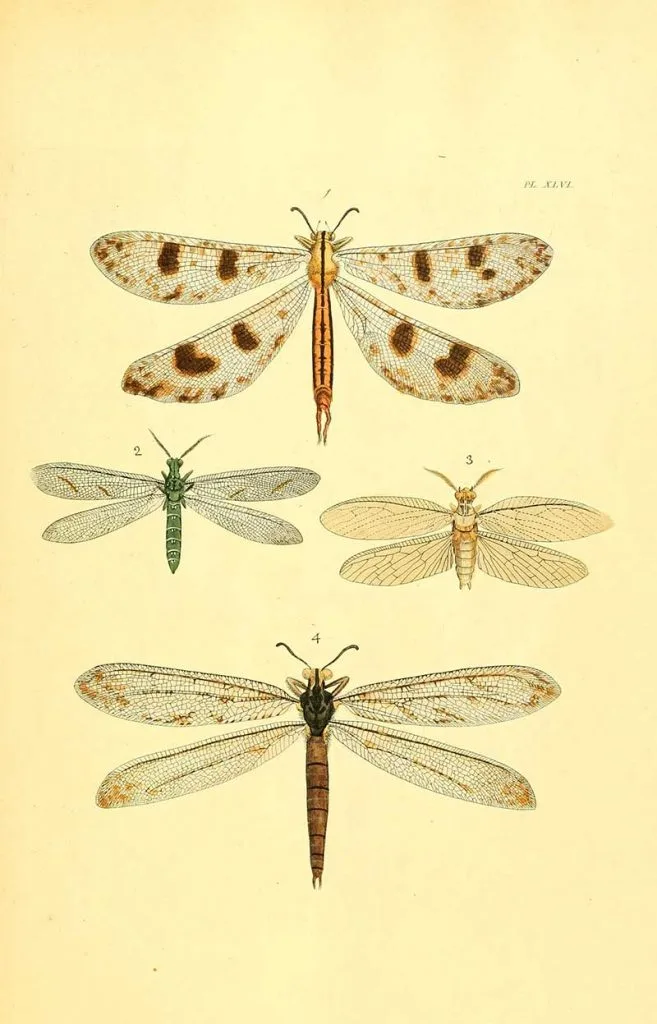
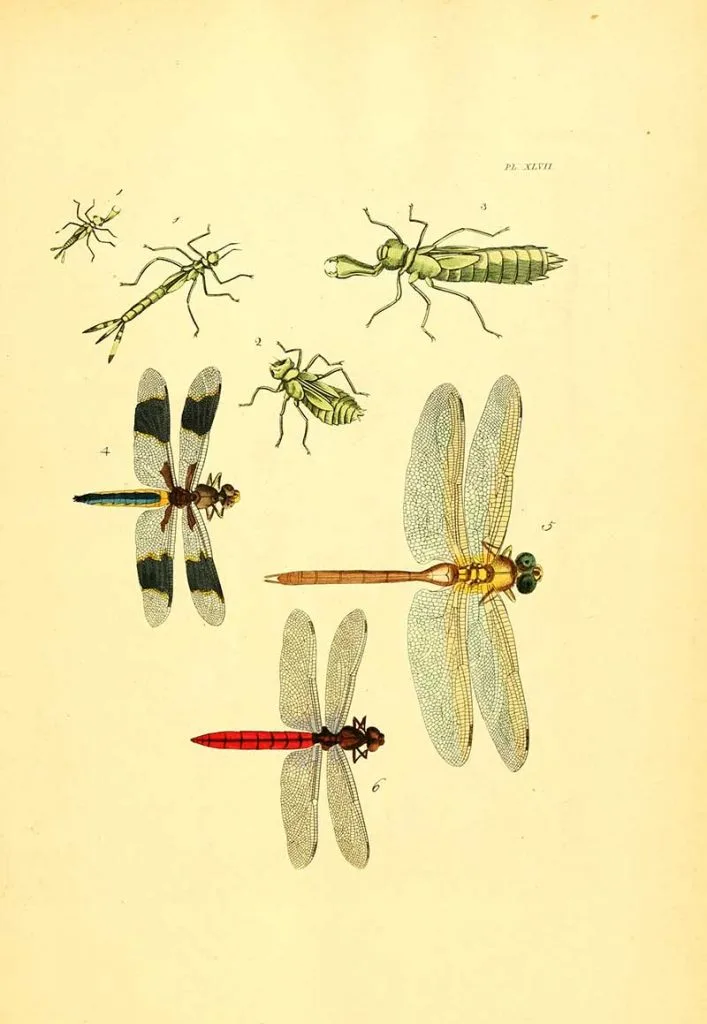
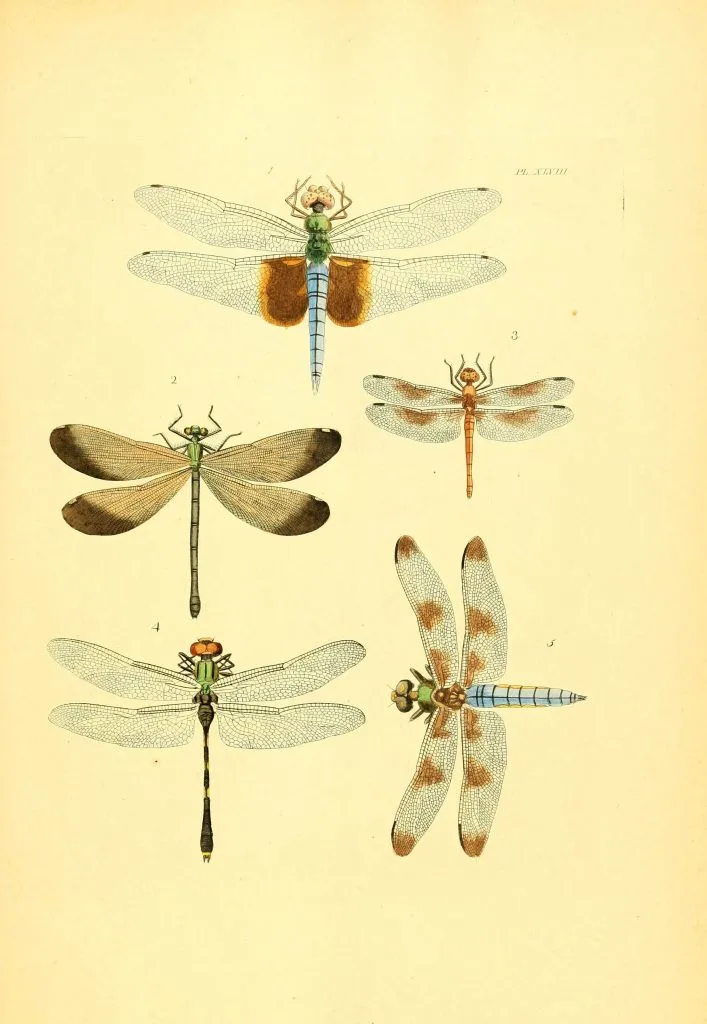
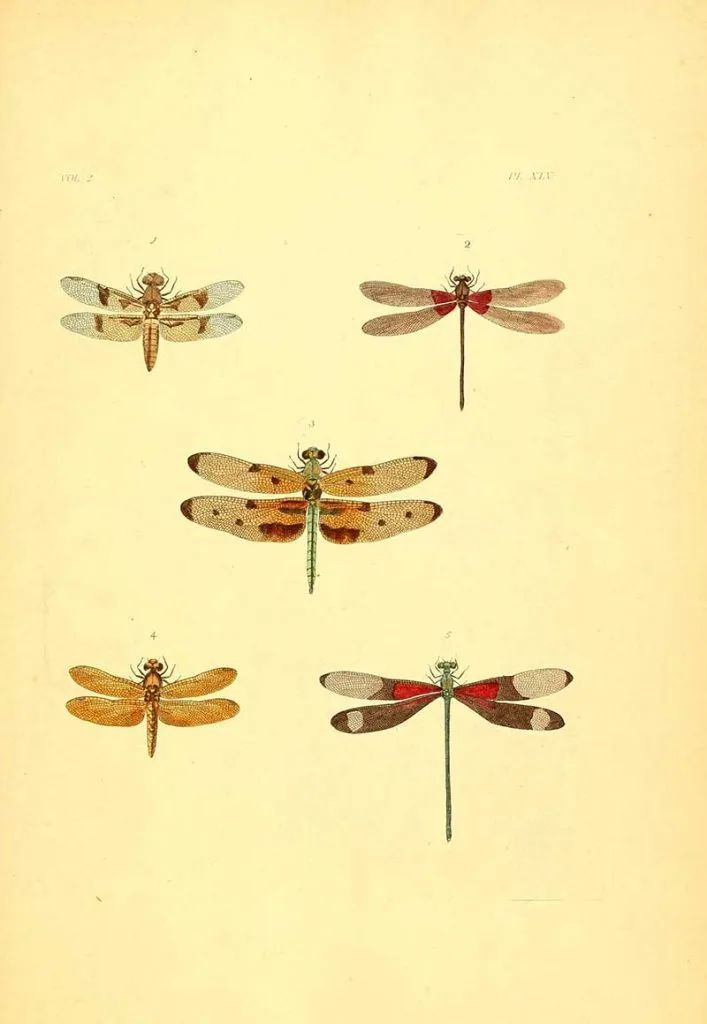
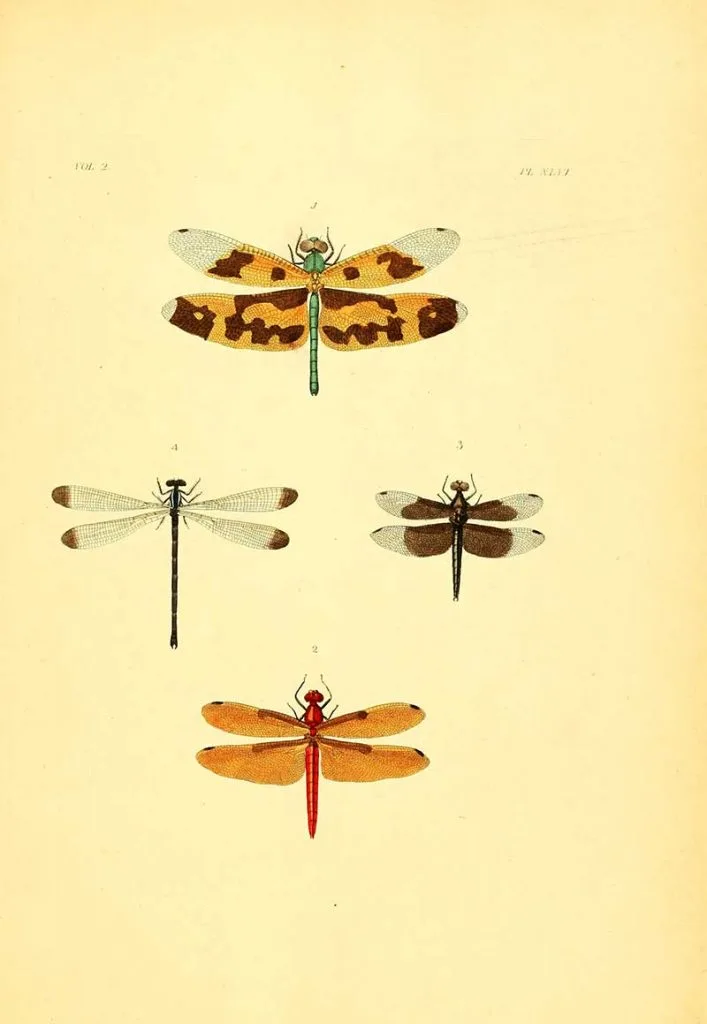
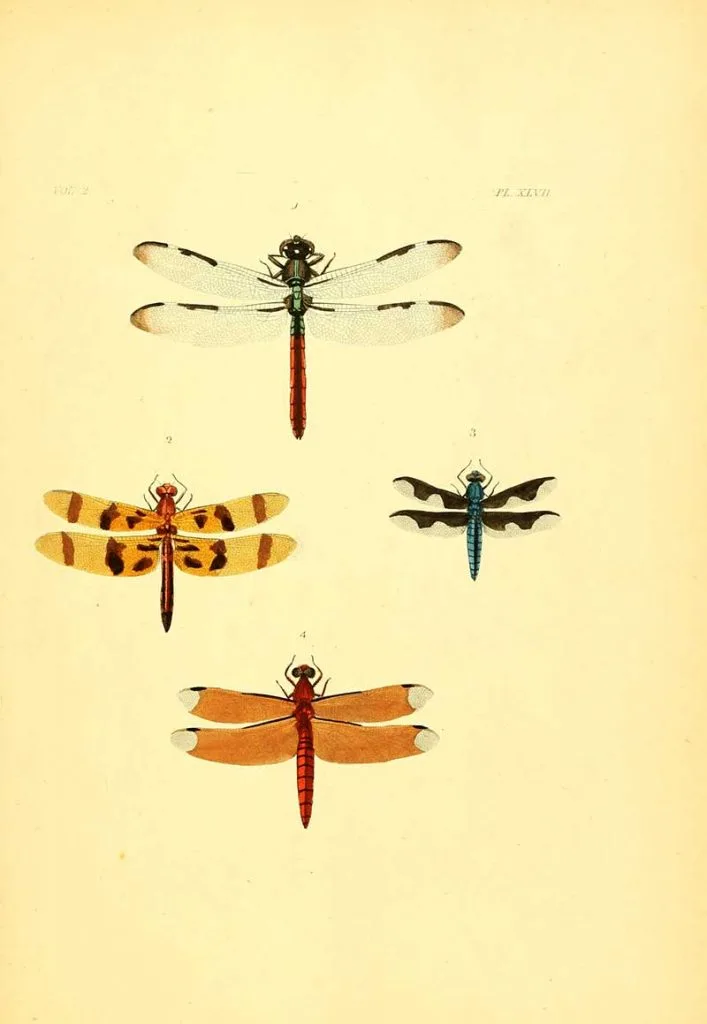
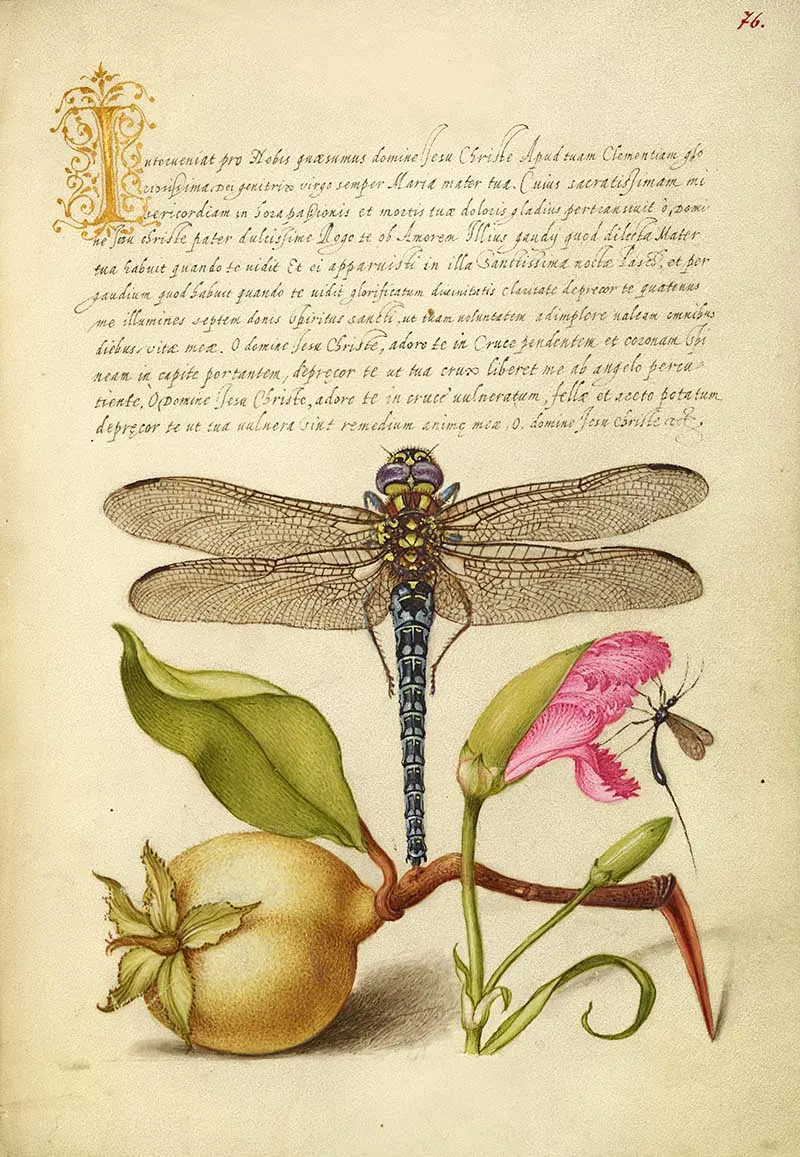
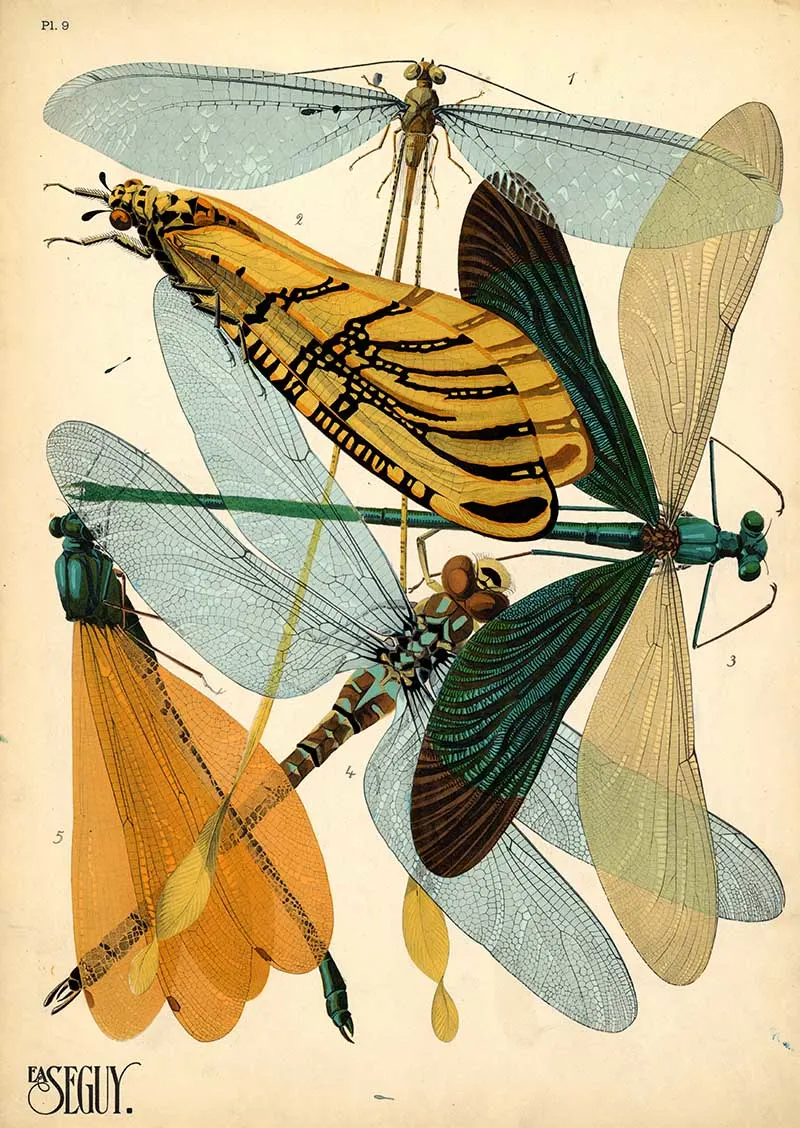
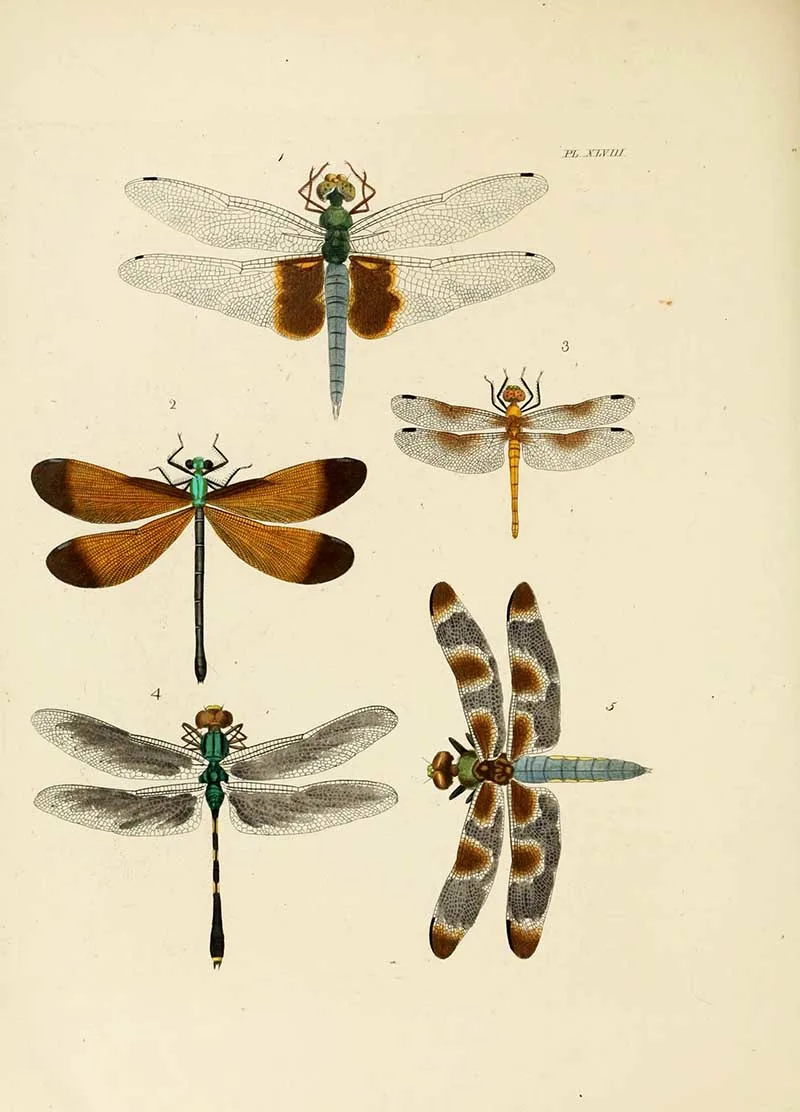

annadora khan
Thursday 6th of October 2022
I couln't believe my luck when I found your wonderful site. Thank you!
claire
Friday 7th of October 2022
Thank you, so much, that is lovely to hear.
karen snyder
Tuesday 3rd of November 2020
Claire, I just LOVE your website and get excited when I receive your emails announcing new posts ! I love all the pictures and themes you choose to highlight and share with everyone. Thanks again ! P.S. I love the dragon flies ,,,,,, I'm going to use some of these to make some spring cards with.
claire
Wednesday 4th of November 2020
Thank you, Karen. I'm really pleased you liked the dragon flies.
Naush Samama
Monday 19th of October 2020
Claire, I love visiting your posts becoz they have such fun and amazing facts about whichever specimen you discuss. The pictures and the information are really interesting. Thank you very much for sharing with us at Meraki Link Party. Naush
claire
Wednesday 21st of October 2020
Thank you, Naush. I just love vintage images but I also love to know a few things about them.
Cecilia
Thursday 15th of October 2020
These are lovely, Claire! Thanks for sharing at Vintage Charm!
claire
Saturday 17th of October 2020
Thank you, I'm glad you enjoyed them.
Rebecca Payne
Thursday 15th of October 2020
I love all of the vintage pintable's you share. Thank you.
claire
Saturday 17th of October 2020
Thank you.